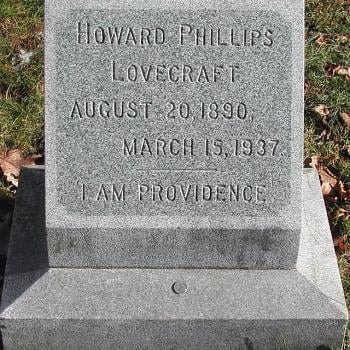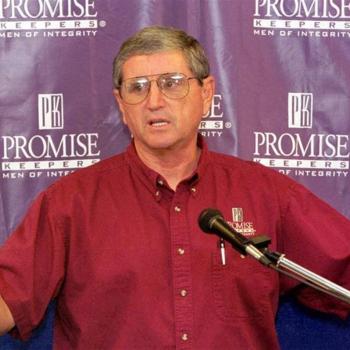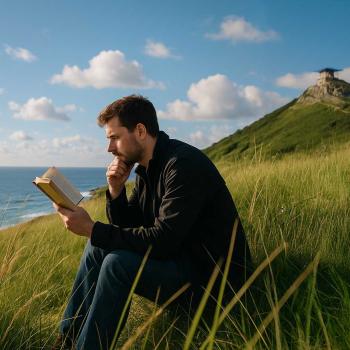And my disillusionment had spread, like a virus in a pandemic, outside my own persona—to Rod. Three years earlier, when he’d first invited Denise and me to come to Cyprus under his leadership, I’d felt so honored. I considered him one of the godliest men of faith within the Church. After all, he was the poster child of commitment inside one of the most disciplined organizations in Christendom. He alone had worked as a missionary during a difficult and violent period in Beirut when other Americans were being killed and kidnapped by the score and all other missionaries had fled Lebanon for their personal safety. Even his own wife and two daughters had fled, then had not heard a word from him for over a year because he’d been too busy to contact them. His legend was well known to me long before I met the man in person. He had been my hero—a true champion of the Christianity I’d come to know.
Now my righteous hero appeared to be a monster. How could I resolve this paradox? He was the greatest man of God I’d ever known—and also the cruelest and savage. Nothing was making sense anymore. My previous boss at my secular job in the United States was an agnostic Jew, a man who was kind and loving to me and my family. He would never have treated us this way. The whole paradigm of my Christian world was disintegrating under the weight of its own erroneous presuppositions, like a paper house under a real stone roof. Those presuppositions were that God was always in total control to bring good and that the Christian society was ethically far above all other societies, where each member cared deeply for the other.
After the hour-long ride, the train pulled into my stop. I had to move quickly or the train would leave again with me still on board. My feet hit the fine Sahara sand beside the tracks and I started the two-hundred-yard walk down the narrow street toward our flat. On the right was a “green space” an empty block were children played football between grazing sheep, occasional camels and rows of food merchant’s tents. One for fish, one for yogurt, one for simple pita bread. On the left was a row of concrete apartment buildings of ashen complexion. My home was in the fifth building and I didn’t know if I could make it. Click, click, click … the fabric of my universe was continuing to unravel. I wanted to make it to our third floor apartment and the safety of Denise’s arms before I diminished into a mirage of myself.
When I arrived at our flat and our old wooden door squeaked open, Denise appeared in the living room in her housecoat. She was trying to muster a smile on her sleepy face. “How did it go?” With our future resting on the outcome of the evening’s meeting, I knew she was hopeful the end to our struggles was near.
“Horribly,” I said softly. I dropped down on the couch and said, more softly, “Just horribly. Everything is a total mess and we will never be moving to join the team in Cyprus or even getting our belongings.” Denise and I sat, for what seemed like a couple of hours in silence, side by side, holding hands and just staring into to space. Occasionally she would ask in different ways something like, “What did he say?” to which I just shrugged my shoulders. As close as the two of us were, I couldn’t find a way to communicate what was happening inside of me. It was the beginning of something terrible, and I had no idea how dreadful it would eventually become or the full decade it would endure. I sat up the entire night. Denise returned to our bed to rest, but she didn’t sleep either.
The Nadir
The hours between two and four in the morning were the only times our apartment’s interior temperature was bearable during the summer. Click, click, click … the clatter continued into the coolness of the early morning until the sun broke over the eastern desert and the rooftops of the apartment buildings that neighbored ours. Even the face of God was starting to blur and change as though it were melting like wax under the heat of the rising sun. Who was God? Did I really know him? Did he really exist after all?
I’d learned of God as a loving father who was in control of everything, even the very hairs of my head. I’d also learned that he rewards those who do good and punishes those who do evil. Hadn’t I done good things? If so, why was I suffering? Why had so much gone wrong on my path of good intentions?
For fifteen years, I had believed following God’s will was my highest desire. In my secret places, I knew I wasn’t perfect, but I was sincere. In my zeal, I’d sought out the toughest Christian disciplining programs precisely because they were hard. I’d given up a good job and, with my family, lived out of an old, brown, diesel VW Vanagon for almost two years while we raised finances necessary to be missionaries to the Muslims. Then we came to one of the most difficult places in the world, just because it was the most challenging mission field—to serve him and follow his will. So why were we being punished? Had I not pleased him after all? Why was God hiding his face as if he was ashamed of me? Click, click, click … the fabric of all I knew of God was falling apart and falling downward into oblivion. I begged the heavens for someone, anyone, to answer me. I heard nothing save a barking dog in a distant flat and the braying of the donkeys pulling the old two-wheeled carts where garbage-collecting children rode in the shadowy streets of predawn.
At the break of dawn, the fajr prayer call starts as the first rays of sunlight touch the roofs of the minarets. First at a mosque, to the east. Then they begin to spread westward into the city, chasing the night away until they reached our little street. “God, he is the greatest,” came that familiar chant in Arabic, streaming then from all corners of Cairo as an out-of-sync chorus. “Fools … we are all damn fools,” was the insistent thought that echoed back from inside my head.




